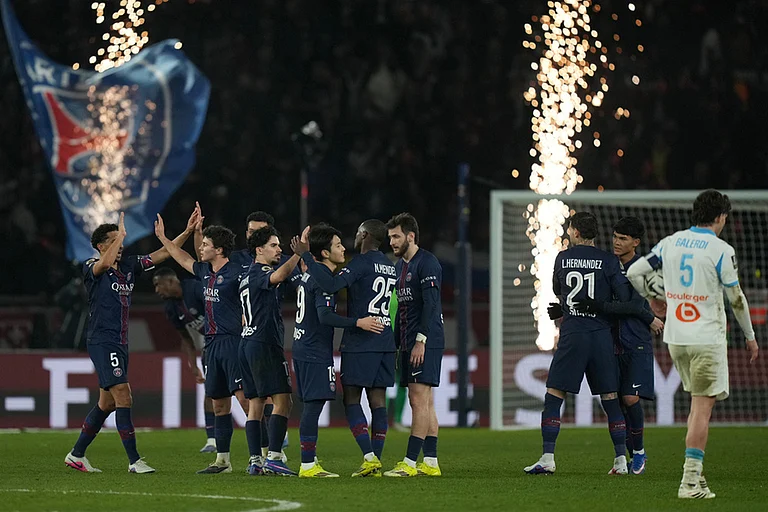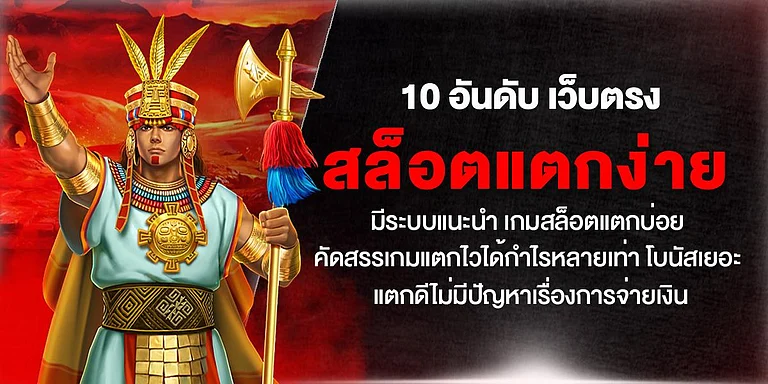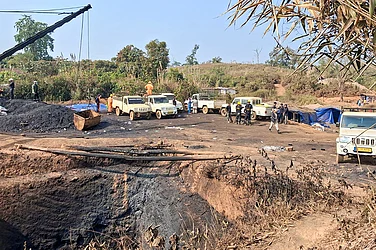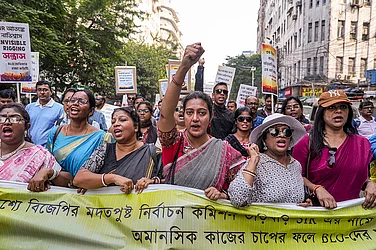EVERYBODY in the North-eastpeople, politicians, policemen, armymen, everybodybelieves the solution to its nightmare does not lie in handing over the reins to the Army. "This is a political problem, and a political problem demands a political solution," iswhat youll hear in Agartala, Guwahati, Kohima, Imphal and everywhere else in-between. Yet, all it takes to see why the seven sisters are plunging into an abyss is to look at what happened when 90-odd Bengalis were butchered in communist-ruled Tripura in mid-February.
As some 34,000 people, correction, as some 34,000 Bengalis took shelter in 22 makeshift camps after militants of the All-Tripura Tigers Force (ATTF) had killed and rioted at will, Union Home Minister Indrajit Gupta, the Communist Party of Indias stalwart in the United Front Government, gave that great healing touch Indian politicians are famous for. He paid a flying visit to the affected area. Good politician that he is, Gupta said there was no need to impose the draconian Disturbed Areas Act which enables the Army to swing into action.
Yet, within 12 hours of his departure, the Army was demandingand gettingthe Act enforced in the worst-affected Khowai sub-division. "Our first task is to establish dominance in the troubled areas and avoid further ethnic clashes," said Brig. B.S. Choudhary, commanding the counter-insurgency operations. By nightfall, troops were being airlifted from distant Punjab. With 3,000 soldiers on vigil, the counter-insurgency grid was in place. "The situation is totally under control," said Tripura Chief Secretary V. Thulasidas.
For how long, he wouldnt say. (By February 22, the Act was being extended to other parts of the state, too.) Cut to Assam. There, a month earlier, after Bodo Liberation Tigers set off a bomb under the speeding Brahmaputra Mail on new years eve to press their demand for a separate state, killing some 50 innocent people settling down to their supper, Chief Minister Prafulla Kumar Mahanta was making the usual post-dinner noises. He would, he said, continue to make efforts for a political settlement with the Bodos. But, sotto voce, he was asking for the Armys help to launch a full-scale operation.
Never mind that the Asom Gana Parishad (AGP), which Mahanta led to power months earlier, had promised in its election manifesto to send the Army out of the state. Never mind that the CPI, a member of the AGP-led five-party alliance, didntpublicly at leastlike the idea of calling in the Army to do the polices job. But insurgency in the North-east has a strange way of pulling the rug from under realpolitik.
So, the same Indrajit Gupta made the same flying visit, and told the Assam government that there was no alternative: law and order had worsened far beyond the capability of the state police. Never mind that Union Home Secretary K. Padmanabhaiah was believed to have said that the state had "sufficient forces" to tackle the militants. Within days of Guptas departure, a Unified Command was in place, with an armyman in charge.
Just days earlier, Lt Gen. R.K. Sawhney, commander of the 4 Corps, had seemed like the reluctant groom. But within days, he too was getting used to the peacetime assignment. Two of the six regional commanders of the United Liberation Front of Assam (ULFA), which is demanding a sovereign Assam nation, were neutralised in those wondrous incidents called encounters in which the pursuers never die.
And having shackled his favourite foes, the Bodos (see interview), even Mahanta is happy: "The Unified Command has worked well in its first month. The desired results have been achieved. Its the best possible arrangement." For how long, he wouldnt say. (The ULFA, which never targeted the Army before, is ambushing military personnel with rocket-propelled grenades and AKs; Bodos are settling around Guwahati.) Maybe its too simplistic to blame all the illsand there are ple -nty of illsplaguing the North-east on mere deployment of the Army. But not to put too fine a point on it, the Army is further alienating an already-alienated people. Says Manipur Peoples Party President Okram Joy Singh: "Such has been the treatment meted out to us, that if theres a referendum tomorrow, 90 per cent of the people will say they do not feel like Indians." The North-east is a region of India like no other. Bountiful and beautiful. As Nagaland Chief Minister S.C. Jamir puts it so eloquently: "God has created the infrastructure here, but man has not exploited it." Closer to Hanoi than Delhi, as the crow flies, its been ill-served by insensitive politicians, national and local, whose minds tick merely in terms of votes-per-head. North-easterns cite Pandit Jawaharlal Nehrus suspicion of people with mongoloid features to justify the attitude of door Dilli but then wasnt Manipur the easternmost outpost of Hindu culture?
It has paid a heavier price for Partition than Punjab. Blood did not flow, multitudes did not cross over. But geo-political isolation as the scalpel scythed through the region, and its consequences in terms of insurgencies and inequities, has gone completely unappreciated. Under one per cent of its boundaries are contiguous with the rest of India; the remaining 99 per cent are international boundaries. "Partition cut us off from our roots and routes which were in and through East Pakistan now Bangladesh," explains economist Jayant Madhab. "Except for Nagaland, all the insurgencies were because of the lack of economic development as the region lay cut off from the rest of India." Dr Manmohan Singhs liberalisation wand just hasnt touched these parts.
ITS a vicious circle," says Mizoram Chief Minister Lalthanhawla. "Industries dont come here because there is no peace. And there is insurgency because there is no development." Finance Minister P. Chidambaram says he can only persuade industries to go to the North-east, he cant force them. But asks Manipur Tourism Director P. Vaiphei: "Did insurgency lead to neglect or vice-versa?" So there is anger, fear, frustration, unemployment, drugs and AIDS here. Yet all Delhiand its servile satraps herecan think of is bringing in the Army. There are no schools, colleges, hospitals, power plants, industries, roads, trains, airports; yet all the Northeast has got so far are vacuous promises, like Prime Minister Deve Gowdas Rs 6,000-crore package, not a pie of which has reached.
Which is why its not difficult to see just how long the Army can keep the simmering discontent under the lid. When the Nagas launched a movement for an independent nation in the mid-50s, New Delhis response was, as always, to send in the Army. It was expected to spell finis to the rebels, to crush them into submission. More than 40 years later, the Indian Government is trying to reach out to Naga leaders in Bangkok to sue for peace.
Whats more, the Naga struggle has spawned half-a-dozen equally powerful underground groups in the region. Over a lakh attended a rally in Imphal last October to question Manipurs merger with the Indian Union in 1949. Says Prof. Gangumei Kamei, president of the Federal Party of Manipur: "Successive Indian governments are only continuing the British legacy of using the North-east to guard the frontier by using the Army." Yet, there are those in the Army, like Lt Gen. S.S. Grewal, commander of the Dimapur-based 3 Corps in Nagaland, who permit themselves rare moments of candour. "Insurgency in the Northeast continues," he says, "because there are people with vested interests who want it to go on." Sometimes they can be politicians, sometimes insurgents, sometimes it can be the Army itself.
The opposition in Tripura, for instance, believes the ruling CPI(M) is abetting the ATTF. "The party is losing ground in its strongholds," says former Congress chief minister Samir Ranjan Barman. "Its creating fear among a section of non-tribals so that it can benefit in the revision of electoral rolls." The CPI(M), expectedly, refutes the charge. Points out Gautam Das, editor of the party organ Desher Katha: "The Opposition, having been routed in all elections in the past four years, is desperate to malign the Left Front. Engineering riots is the easiest way to discredit our government. The National Liberation Force of Tripura (NLFT) is abetted by the Congress." While the slug-fests go on for a few votes more, the victims lick their wounds. "We do not know who is behind the killings. And why. But my mother was shot dead in front of my eyes. Who will bring her back?" wails twentysomething Dipankar Chakravarthy.
While Tripuras chief secretary rests content that the situation is now "totally under control", no one will address the real issues. No one will ask why the very sick Dasarath Deb has not been replaced by a more hands-on chief minister. No one will ask why the Inner Line Permit (ILP) system to arrest the land alienation is not introduced. No one will ask how the demographic inversion (a euphemism for the majority becoming the minority and vice-versa) was allowed to take place.
There were just 30 per cent non-trib-als in land-locked Tripura in the 50s. Now they comprise 70 per cent, most of them refugees. This has led to great resentment among tribals. Khowai, where the strife took place, has Bangladesh on three sides.
The ATTF are known to have been trained and even armed by the ULFA. "Sometimes, the ULFA participates in ATTF operations," says a senior Army officer. "And the NLFT has links with the NSCN (Muivah)." Attempts to impose curfew along the border are opposed by politicians, bail pleas of arrested militants go unopposed by the Government, no effort is made to improve the efficiency of the police. "If the Government does not give any serious indication of fighting insurgency, how can the Army do it," asks Lt Gen. Grewal. Its a tack his counterpart in Assam takes. "We can at best bring down the law and order situation to an acceptable level, but ultimately the answer must be found at the political level," says Lt Gen. R.K. Sawhney.
Sawhneys troops have been hurled a great deal of flak lately over alleged encounter deaths. The Army is alleged to be settling land deals on behalf of rich businessmen. Mahantas opponents accuse the chief minister of using the same tactics as that of his Congress predecessor, Hiteswar Saikia, to crush the rebels. "The Army is treating the rural masses like aliens. We were enjoying a partial democracy here. That has gone with the Unified Command coming in," says Ajit Kumar Bhuyan, editor of the mass-circulation newspaper Asomtya Pratidin. "If the influx from Bangladesh and other states is not stopped, there will be more Assams." Although Mahanta has been more sympathetic to the ULFA than to the Bodos, ULFA sympathisers say there is no reason for the government not to begin peace talks. "If former ministers can be deputed all the way to Thailand to talk to Naga rebels, whats preventing them?" they ask. What are the ULFAs demands? It wants an independent sovereign Assam, it wants the talks to be held in a third country and it wants the Army withdrawn before the negotiation process can begin. Which brings things back to square one.






















